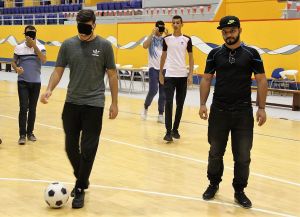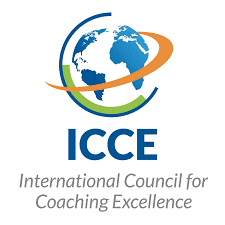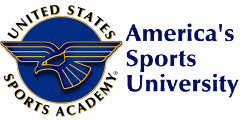Sports Coach Development
 The skills necessary to be a sport coach have never been more highly valued around the world. All major international sporting organizations recognize the importance of quality coaches. National Olympic Committees and International Sport Federations across the globe have supported the implementation of the International Sports Coaches Framework (ISCF) developed by the International Council for Coaching Excellence (ICCE).
The skills necessary to be a sport coach have never been more highly valued around the world. All major international sporting organizations recognize the importance of quality coaches. National Olympic Committees and International Sport Federations across the globe have supported the implementation of the International Sports Coaches Framework (ISCF) developed by the International Council for Coaching Excellence (ICCE).
Countries around the world use a variety of methods and processes to build the parallel tracks of athlete and coach development in order to bring the right athletes in contact with the right coach at the right time. It is clear from studying National Sports Development Plans and Coach Development Frameworks that all countries that have sustained success at the international level of sports have a systemic approach for providing coach education. Formal education coupled with informal experience develops a community of coaches that can provide the support necessary for athletes to pursue excellence in the international arena.
Sports Development Plans and Coach Development Frameworks that all countries that have sustained success at the international level of sports have a systemic approach for providing coach education. Formal education coupled with informal experience develops a community of coaches that can provide the support necessary for athletes to pursue excellence in the international arena.
As an organizational member of ICCE, the United States Sports Academy has developed a multi-tiered International Sports Coach Development Curriculum utilizing the ICSF and best principles from high performing national federations. The curriculum is designed to provide the appropriate technical, tactical, and interpersonal knowledge at three distinct milestones on the coach development pathway and to focus on the specific context in which the coach is working.
Lead Coach Development Program
The first coaches encountered by emerging athletes are critical to how the athletes perceives the sport. These coaches play a vital role in developing the desire of young athletes to build their skills and aspire to the next level of competition. The LCDP consists of four courses plus the Practical Application & Sports Clinic. Sports Coaching Methodology serves as the foundation. The remaining three courses; Athlete Development, Strength & Conditioning for the Emerging Athlete, and Sport Psychology for the Emerging Athlete; provide the critical domain-specific knowledge required for coaches to successfully build relationships and team culture as well as deliver practice and competition plans.
Head Coach Development Program
Each course in the HCDP is specifically designed to meet the needs of coaching professionals to become leaders within their communities as Head Coaches. The HCDP consists of four courses plus the Coaching Practicum. The four courses are: Sports Coaching Methodology, Coaching Technical & Tactical Skills; Strength & Conditioning for Performance Athletes; Sport Psychology for Performance Athletes.
National Coach Development Program
This program was initially developed by the Academy in 1979 as the International Certification in Sports Coaching (ICSC) program and has been delivered almost 80 times in countries all around the globe. The program provides student coaches with the knowledge and skills to succeed in coaching at the highest levels of sport. Courses focus on high performance planning, advanced sports psychology, testing & evaluation, advanced physical training & conditioning, sports nutrition, and sports medicine. The certification program consists of six courses with an option for an international study tour for qualified students.
Mentor Coach Program
The research in coach education recognizes that informal interactions with experienced coaches is a key element of further development among experienced coaches. At all steps on the development pathway it is beneficial for coaches to be observed, evaluated, and led through personal reflection with a Mentor Coach. The International Mentor Coach Program is designed to train a small group of experienced coaches, nominated by the National Sport Federations, to fill this critical role and to build a cohort of Mentor Coaches that can provide this service throughout the nation. Due to the highly contextual nature of training Mentor Coaches, this program is developed in collaboration with, and specifically for partner National Olympic Committees or Professional Leagues.

